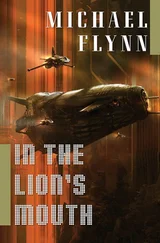A kind of low comedy seemed to have taken hold of the town. Petty crime, overworked prostitutes, talkative invalids, suspect fishermen, vain girls. Some Americans were stationed there and the local women had been surfeited with attention. As far as Will could see it had made them all prone to overestimate their own charms, vulgarly capricious and avid for gifts. The girl who enlivened Will’s imagination was not to be found among them. She was dark, different, intelligent, aloof. Will pictured a sharp refinement to her beauty: aquiline, subtly expressive, almost like speech; it spoke to him. She would have little time for the common run of people but she would notice him, she would recognise him, his complexity and command. She would be passionate. Perhaps she was the daughter of a vicar or a medical man. She read into the night and walked along the coastline. She was nothing like the laughing dollies of the pubs, smelling of face powder and cigarettes and beer.
Sergeant Major Henderson wasn’t interested in these women either. He was a practical man and preferred the prostitutes. The other night he had received the men in his room, stripped from the waist down, sitting open-legged in front of the fire, a razor rasping through his pubic hair as he shaved it off. ‘For the avoidance of crabs,’ he informed them. ‘I suggest you strip your area as well. Don’t give ’em anything to hold onto.’ His legs were large and white as wax. Between his feet dropped dry curls of coppery hair. He had similarly forthright advice about dealing with civilians and fellow soldiers. ‘You’ll want to get off on a good footing. I find it helps give the idea if you refer to them as “You fuckers”.’
Will nodded. That was what a sergeant major was for: to inculcate the coarseness and expeditious brutality of military manners. Not that Sergeant Major Henderson would have thought in those terms. He simply was brutal and coarse. His shaving left him with scalded pink genitals, nude and obscene. He tried to look away while Henderson stood up swinging to pull on his underpants. At this point Captain Draycott entered and froze, blinking, trying to work out what he had walked into. Henderson calmly buckled his trousers. ‘Lessons in hygiene, sir,’ he said.
Captain Draycott was a very different man, a DPhil in Icelandic Literature from a military family but a man who wouldn’t have entered the army if it hadn’t been for the war. He was gifted with a natural physical prowess that was apparently accidental. He rowed and played handball. With his eyes of clear, rinsed blue, he was obvious leadership material. His eyes weren’t piercing, however, but sensitive, vulnerable. Confronted with the gross, obtuse, often perverse demands of the army, he would halt, blink, and look around as though to catch the attention of someone reasonable who could never be found. Will would certainly have made a better captain than Draycott. Perhaps one day, war being what it is, he would get his chance.
The wind had strengthened, cuffing the water into little waves that raced endlessly into the harbour wall. The gull had been joined by two others. They circled in the air and settled, bowing and calling.
‘Afternoon, squire.’ Travis, come to relieve him. ‘Anything of note? U-boats among the mackerel fleet?’
‘No activity of any kind. Shit all, as Henderson would say.’
‘Smoke?’
‘Abso-bloody-lutely.’
Travis tapped a couple of cigarettes from his pack and flipped open his lighter. Will lit his from the ragged, blustery flame. Travis snapped the lighter shut. He smiled, tilting upwards the cigarette between his lips.
‘Least we’re not in any bother,’ he said.
‘True enough. I detect no immediate peril.’
‘That’s right. And you get to keep all your limbs that way. No sliding about outside Woolworth’s on a wooden tray begging with a tin cup.’
‘Can’t argue with that. You can just stand here and enjoy the view.’
‘Exactly.’
‘And we’ll all die as old men in our beds with nothing on our minds.’
‘Sounds ideal.’
Back in the hut, Will found Samuels reading a magazine, head bent, a cigarette held at his temple, exhaling smoke onto the opened pages. ‘Afternoon,’ he said without looking up. ‘Enjoy the ozone?’
‘Bored. Bored. Bored. Bored. Bored. Couldn’t find a book to read?’
‘My apologies, professor.’ Samuels imitated Travis’s voice: ‘But we’re all safe and sound, ain’t we?’
‘I know. Awfully cheering, isn’t it.’
Samuels turned a page cleanly, slowly, with his skilled fingers. A Jew, Samuels’ father was the proprietor of a wireless shop in London and the young Raphael — who liked to be called ‘Rafe’ in the English manner; Will called him Samuels — had grown up fiddling with valves and wires. He loved the machines and the broadcasts and could be quite poetic on the subject, talking of the invisible radio waves that surrounded them all, beamed through the air and separated into electrical impulses by these beautiful machines. Will suspected that all Samuels knew, admittedly quite a lot, he had gleaned from his listening rather than reading or a real education. An automatic, fastidious recoil from Samuels sometimes occurred in Will. He wanted to distinguish between them. They were not the same thing, not to be confused, even if they shared a stature, an eye colour and a rank in this unsatisfactory unit.
Will sat down and looked at the bustling clouds. The bright window pane shook.
‘I want to do something,’ he said.
‘I know you do. But this won’t last for ever,’ Samuels said. ‘It can’t, can it? Nothing does.’
Will lit one of his own cigarettes, dragging the match aflame with a slow, vindictive scrape. The hut hummed in the wind.
For the next three days nothing happened except the theft from a vessel of a couple of crates of prosthetic limbs. There were jokes about that — checking the town for men with three legs, and so on — but Will didn’t find them amusing. Standing in the hold inspecting an open crate full of arms had given Will a very unpleasant feeling. It was one sudden thought, that those unnatural smooth forms, parodies of human flesh, actually embodied real pain in real men, men with their limbs blown off, or — even more powerful to realise — men whose limbs hadn’t yet been blown off but would be, any moment, possibly that very moment. It was the way the boat rocked as he stood in it. It was all mixed up with Lucretius and the swerving atoms that make up the world and its events and it all came home to him. He was enclosed in the thought as in a dream. The war was very large and complicated and, in some important ways, wrong. The scale of it was disclosed by this one tiny detail, this one negligible fragment of the chaos. The prosthetic limbs lay in the open crate in front of him like bits of outsized dolls, marionettes, things for the theatre. Thoughts thronged in his mind with such force they almost unbalanced him. He said nothing. He told the man he could close the case again. Outside, in the sea air, he breathed and felt better.
That night Captain Draycott gave them the news. They were off. Finally, a proper posting — to liberated North Africa.
Two nauseous weeks on board ship, more digression and delay. But beneath the leaden hours, Will could feel, flashing, impatient, the bright incipience of adventure, of the action he was sailing towards.
The first view of the town showed a delicate white human construction set above the sea, very intricate and appealing after the monotonous, elemental voyage. The soldiers disembarked, were processed and billeted and walked through a pretty Islamic place of domes and minarets and blue shadows across whitewashed walls. There were shell holes and craters, pockmarks of bullets in plaster. A late-flowering plant grew everywhere, in gardens and high places, hung with spidery red blossoms. Frenchmen in white suits and straw hats observed the troops with an effortful nonchalance. Will smiled at one, was scowled at. They seemed without gratitude or energy. A strange atmosphere. Lassitude and recent death. The Arab children were more alive, smiling, running up, running away. Will tried an Arabic phrase on one little girl. She caught her sudden laugh in a cupped hand, stopped still and stared as he walked on with the others.
Читать дальше












